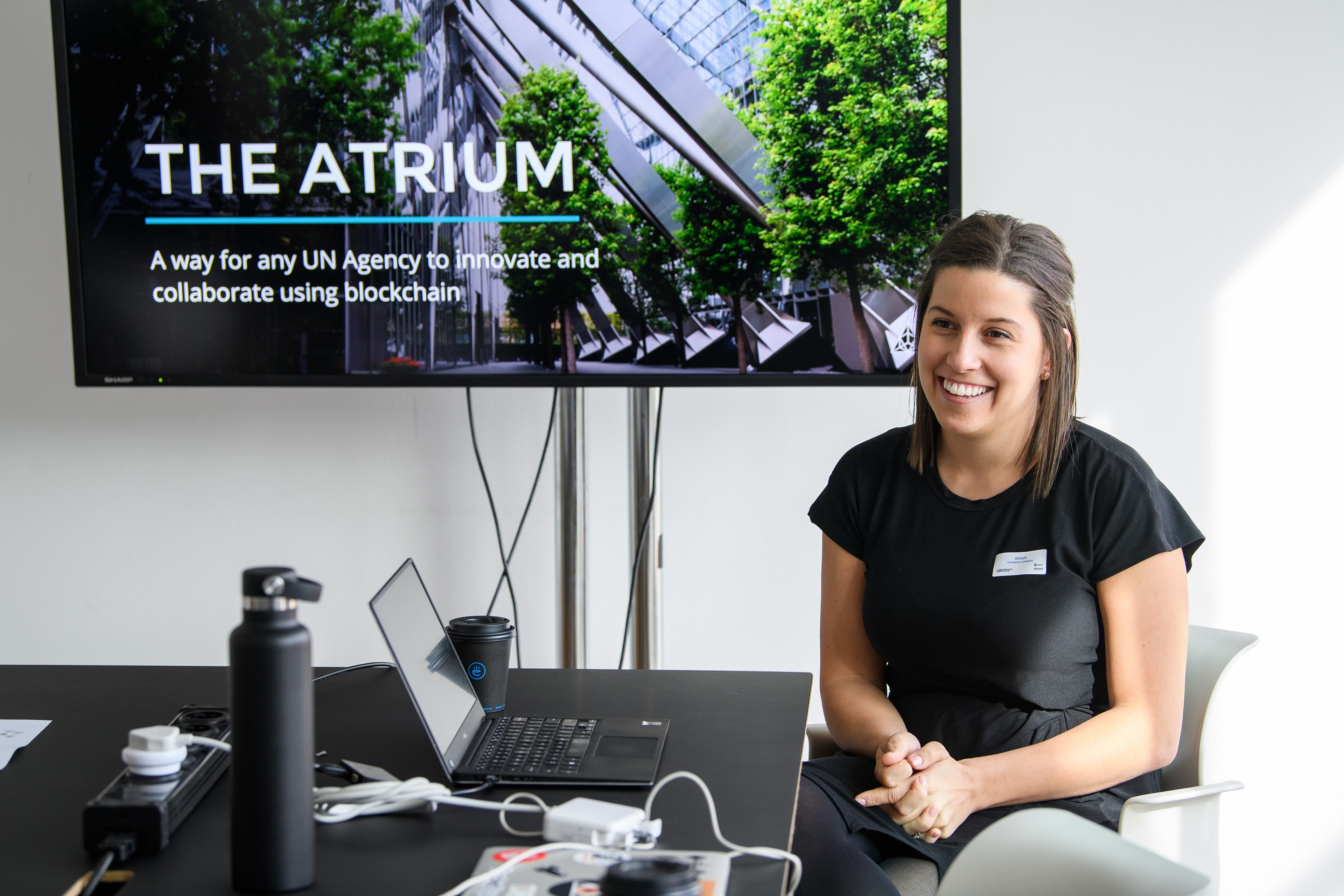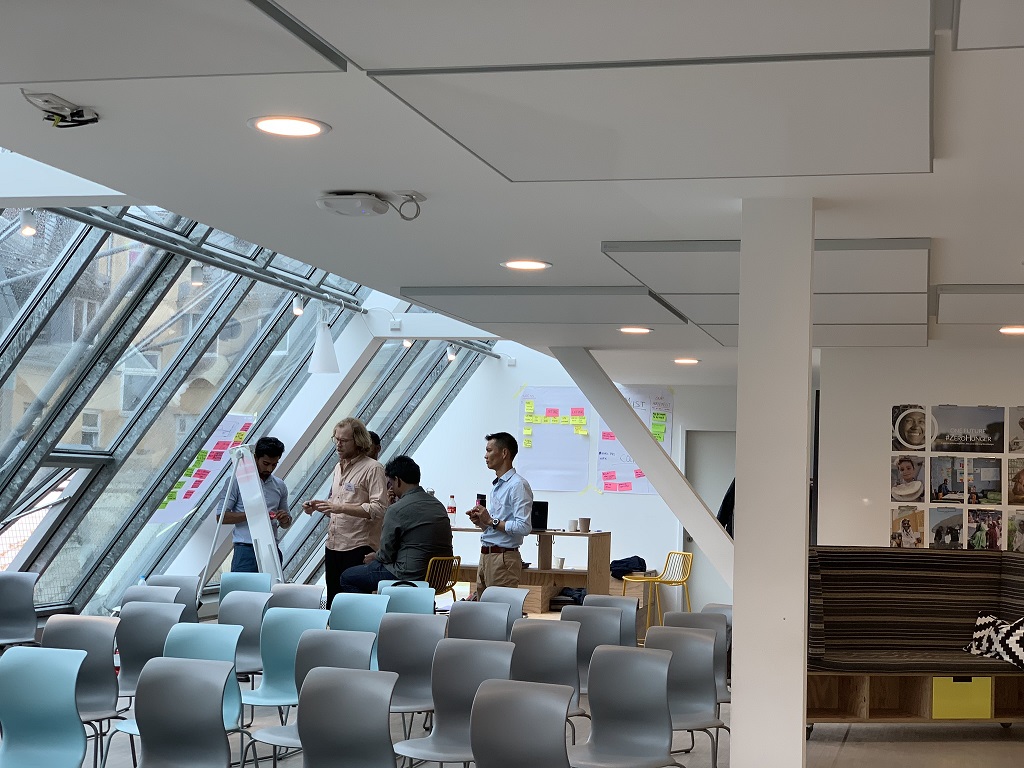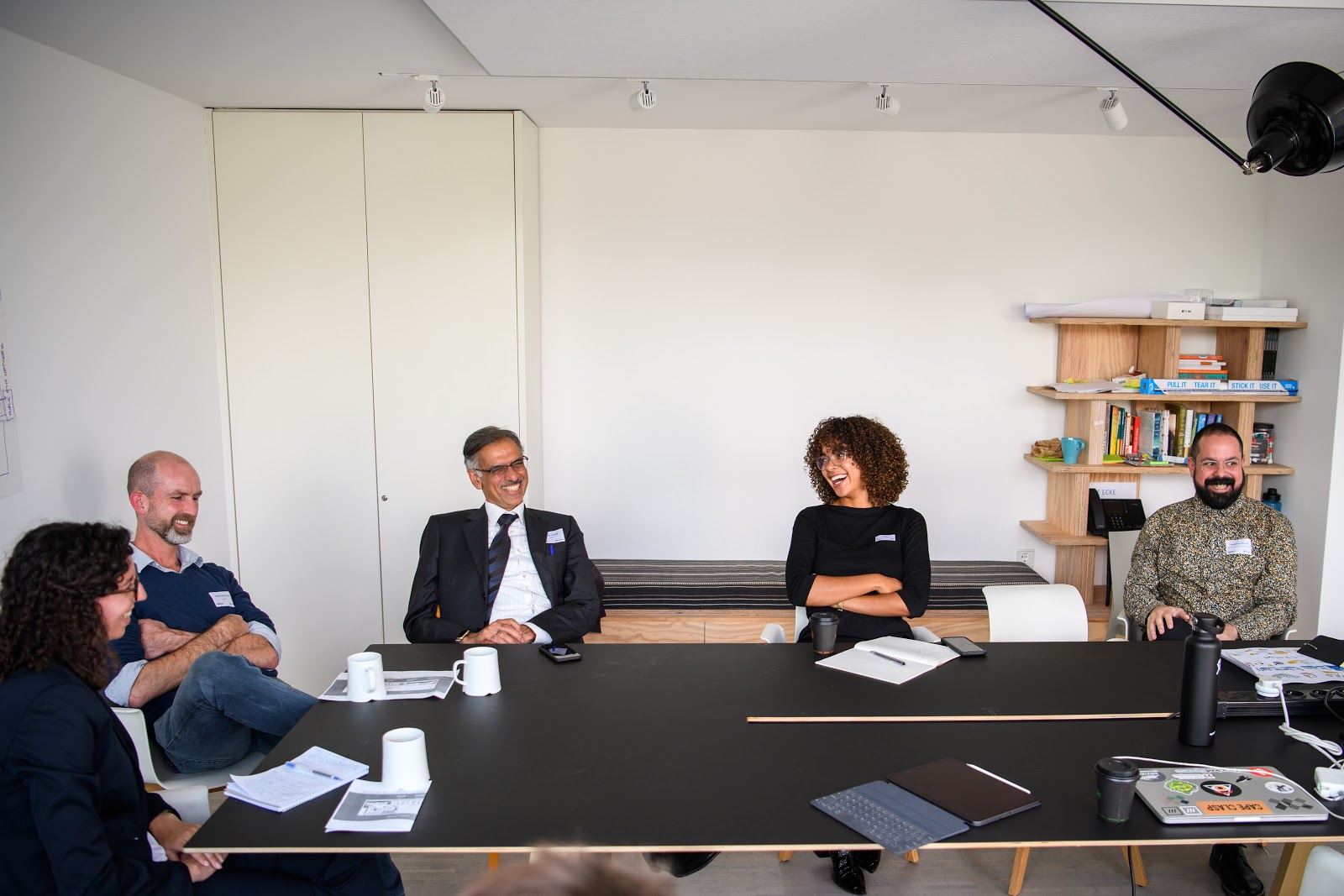Experimenting with a new technology isn’t always easy, particularly within large organizations. One of the most powerful aspects of working within a UN agency is that we find ourselves part of a larger, global system that, with the right tools, can allow us to harness our collective, cross-agency efforts to accelerate change. Blockchain-based applications are currently being explored by several UN agencies, and as a team, we wanted to come together to find a way that we could leverage one another’s learnings, while also enabling more agencies to experiment.
The Atrium is an interagency development sandbox designed to enable collaboration across UN agencies who are interested in blockchain technology.

What is The Atrium?
The Atrium is comprised of two components; a storefront to share blockchain applications, and the underlying infrastructure to test those applications. The Atrium will enable members to share their easily launch blockchain applications, to vote on decisions as a community, and to receive badges that will unlock varying permissions within the platform.
At a high level, the project looks to reduce the friction related to innovating and increase collaboration between UN agencies. As a permissioned private blockchain, accompanied by a distributed application (dApp) store, UN Agencies are able to easily share intellectual property (IP), and test applications in a secure environment.
Intended for experimentation, The Atrium is a private, permissioned blockchain, allowing participants to explore, try new things, fail and iterate. In the same way atriums allow plants, or ideas, to grow, while sheltering them from outside elements, The Atrium will allow users to experiment with blockchain technology in a sandbox environment.

The Atrium In Action
With the Atrium library, innovators are able to share their project code in a GitHub repository with other Atrium members. Not only will participants be encouraged to share what they are working on, but to build on the existing work of others – a potential solution to increase collaboration and reduce necessary development time by enabling teams to leverage one another’s work.
For example, when an agency wants to explore blockchain-based certificates, rather than building an application from scratch, they are able to use The Atrium to leverage existing code and dramatically reduce the time required to deploy. This was done recently at the UN Innovation Network’s (UNIN) Interagency Bootcamp, held at the World Food Programme’s (WFP) Innovation Accelerator in May 2019. WFP was interested in issuing certificates validating the participation of bootcamp attendees and were able to harness the existing UNICEF Innovation code from a previous blockchain certification app. After the deployment, the teams discovered that they saved nearly 86% of the time over the original amount of time it took to launch the application; the time savings were due to the fact that code that was already written could be leveraged.
Currently Open to UN agencies
The Atrium is open to any UN agency who is curious to learn more about blockchain or who has already perhaps experimented with the technology. The ethos of blockchain lies within its decentralized nature - no single agency or individual owns the blockchain. Anyone can run a node, giving them the ability to maintain the ledger. No previous coding or blockchain experience is required to take part in the system. All that is required is an eagerness to try new things and learn from peers.

Where The Atrium Began
At the beginning of May 2019, UNICEF Ventures' and the WFP's blockchain teams headed to Munich, Germany to participate in the UN Innovation Network Inter-Agency Bootcamp. Nine teams from ten different UN agencies gathered under one roof at the World Food Programme’s Innovation Accelerator to hone, refine and iterate on projects. The primary goal of the UNIN bootcamp was to foster inter-UN agency collaboration, giving teams a place to gather, learn from one another and receive mentorship from humanitarian and private sector experts. At the end of the week, each team had 3 minutes to pitch to a packed house of their peers, investors and community members. As the week came to a close, teams made game plans, designing their next steps forward as we all returned home.
Looking Forward
The Atrium is currently under development. In the coming months, other UN agencies will be onboarded, strengthening the network effect of the solution - as more participants join and share their thoughts and ideas, more projects can be incubated and the amount of time and effort required to launch a new project will decrease.
The Atrium will take a phased approach to onboarding additional users as it looks to scale. Ultimately, the goal is to get agencies comfortable with blockchain applications and infrastructure to transition to a public blockchain, taking full advantage of blockchain’s inherent and unique qualities.
If you’re a UN agency interested in this project, please reach out.
For more information, contact blockchain@unicef.org or global.innovation@wfp.org
*(This article was originally written by Ariana Fowler, Blockchain Strategist at UNICEF.)


